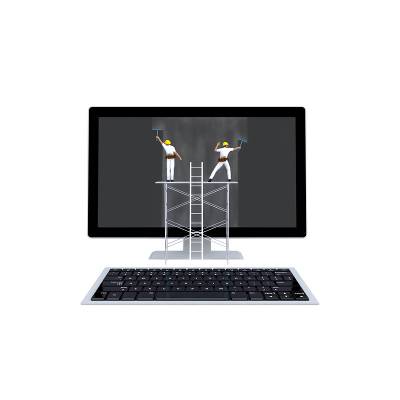Joomla! Debug Console
⇒{"__default":{"session":{"counter":2,"timer":{"start":1757755656,"last":1757755656,"now":1757755657},"client":{"forwarded":"10.3.38.46"},"token":"76f823fc8877cd401b77c7bc246302d4"},"registry":{},"user":{"id":0,"name":null,"username":null,"email":null,"password":null,"password_clear":"","usertype":null,"block":null,"sendEmail":0,"registerDate":null,"lastvisitDate":null,"activation":null,"params":null,"groups":[],"guest":1,"lastResetTime":null,"resetCount":null,"aid":0},"eff8fb9935b312a7aafbdcce9f7ca7f1":1},"__easyblog":{"site":{"messages":null}}}
21.32 MB (22,360,456 Bytes)
199 Queries Logged
SELECT `data`
FROM `p3sae_session`
WHERE `session_id` = '8a57c262cde6eaa5c8a13c3203be931e'DELETE
FROM `p3sae_session`
WHERE `time` < '1757746657'SELECT folder AS type, element AS name, params
FROM p3sae_extensions
WHERE enabled >= 1
AND type ='plugin'
AND state >= 0
AND access IN (1,1)
ORDER BY orderingSELECT extension_id AS id, element AS "option", params, enabled
FROM p3sae_extensions
WHERE `type` = 'component'
AND `element` = 'com_languages'SELECT `query`
FROM `p3sae_admintools_wafexceptions`
WHERE (`option` IS NULL OR `option` = '')
AND (`view` IS NULL OR `view` = '')
GROUP BY `query`
ORDER BY `query` ASCSELECT `value`
FROM `p3sae_admintools_storage`
WHERE `key` = 'cparams'SELECT *
FROM `p3sae_admintools_ipautoban`
WHERE `ip` = '10.3.38.46'SELECT `source`,`keepurlparams`
FROM `p3sae_admintools_redirects`
WHERE ((`dest` = 'index.php/blog/categories/security') OR (`dest` = 'index.php/blog/categories/security?start=48') OR ('index.php/blog/categories/security?start=48' LIKE `dest`))
AND `published` = '1'
ORDER BY `ordering` DESC
LIMIT 0, 1SELECT m.id, m.menutype, m.title, m.alias, m.note, m.path AS route, m.link, m.type, m.level, m.language,m.browserNav, m.access, m.params, m.home, m.img, m.template_style_id, m.component_id, m.parent_id,e.element as component
FROM p3sae_menu AS m
LEFT JOIN p3sae_extensions AS e
ON m.component_id = e.extension_id
WHERE m.published = 1
AND m.parent_id > 0
AND m.client_id = 0
ORDER BY m.lftSELECT *
FROM p3sae_easyblog_configs
WHERE `name` = 'config'SELECT *
FROM p3sae_easyblog_category
WHERE `alias` = 'security'SELECT extension_id AS id, element AS "option", params, enabled
FROM p3sae_extensions
WHERE `type` = 'component'
AND `element` = 'com_rereplacer'SELECT extension_id AS id, element AS "option", params, enabled
FROM p3sae_extensions
WHERE `type` = 'component'
AND `element` = 'com_easyblog'SELECT *
FROM p3sae_languages
WHERE published=1
ORDER BY ordering ASCSELECT id, home, template, s.params
FROM p3sae_template_styles as s
LEFT JOIN p3sae_extensions as e
ON e.element=s.template
AND e.type='template'
AND e.client_id=s.client_id
WHERE s.client_id = 0
AND e.enabled = 1DELETE
FROM `p3sae_easyblog_mailq`
WHERE `status`='1'
AND DATEDIFF(NOW(), `created`) >='7'SELECT `id`
FROM `p3sae_easyblog_mailq`
WHERE `status`='0'
ORDER BY `created` ASC
LIMIT 5SELECT *
FROM `p3sae_easyblog_post`
WHERE `publish_up`<='2025-09-13 09:27:37'
AND `published`='2'
AND `state`='0'
ORDER BY `id`
LIMIT 5SELECT id, created_by
FROM`p3sae_easyblog_post`
WHERE `publish_down` > `publish_up`
AND `publish_down` <= '2025-09-13 09:27:37'
AND `publish_down` != '0000-00-00 00:00:00'
AND `published` = '1'
AND `state` = '0'SELECT *
FROM `p3sae_easyblog_uploader_tmp`
WHERE `created` <= DATE_SUB('2025-09-13 09:27:37' , INTERVAL 120 MINUTE)delete a, b
from `p3sae_easyblog_post` as a
inner join `p3sae_easyblog_revisions` as b
on a.`id` = b.`post_id`
where a.`published` = '9'
and a.`created` <= DATE_SUB('2025-09-13 09:27:37', INTERVAL 3 DAY)SELECT *
FROM `p3sae_menu`
WHERE `published`='1'
AND `link` LIKE 'index.php?option=com_easyblog%'SELECT *
FROM `p3sae_easyblog_acl`
WHERE `published`='1'
ORDER BY `id` ASCSELECT *
FROM `p3sae_easyblog_acl_group`
WHERE `content_id`='1'
AND `type`='
group'SHOW FULL COLUMNS
FROM `p3sae_assets`SELECT id
FROM p3sae_assets
WHERE parent_id = 0SELECT b.rules
FROM p3sae_assets AS a
LEFT JOIN p3sae_assets AS b
ON b.lft <= a.lft
AND b.rgt >= a.rgt
WHERE (a.id = 1)
GROUP BY b.id, b.rules, b.lft
ORDER BY b.lftSELECT extension_id AS id, element AS "option", params, enabled
FROM p3sae_extensions
WHERE `type` = 'component'
AND `element` = 'com_users'SELECT b.id
FROM p3sae_usergroups AS a
LEFT JOIN p3sae_usergroups AS b
ON b.lft <= a.lft
AND b.rgt >= a.rgt
WHERE a.id = 1SELECT *
FROM p3sae_easyblog_category
WHERE `id` = '12'SELECT *
FROM p3sae_easyblog_meta
WHERE `content_id` = '12'
AND `type` = 'category'SELECT *
FROM p3sae_easyblog_category
WHERE `id` = '12'SELECT *
FROM p3sae_easyblog_category
WHERE `id` = '12'select a.`id`, a.`title`, a.`alias`, a.`private`, a.`parent_id`
from `p3sae_easyblog_category` as a
WHERE a.`lft` > '16'
AND a.`lft` < '17'
and a.`published` = '1'
AND (( ( a.`private` = 0) OR ( a.`private` = 1
and 1 > 0) OR ( a.`private` = 2
and (select count(1)
from `p3sae_easyblog_category_acl`
where `category_id` = a.`id`
and `acl_id` = 1
and `content_id` in (1)) > 0)))
ORDER BY a.`lft` ASCSELECT COUNT(1) AS `cnt`
FROM `p3sae_easyblog_post_category` AS `a`
INNER JOIN `p3sae_easyblog_post` AS `b`
ON a.`post_id` = b.`id`
AND b.`published`='1'
INNER JOIN `p3sae_easyblog_category` AS `c`
ON a.`category_id` = c.`id`
AND b.`access`='0'
WHERE ( c.`id` IN (12) or c.`parent_id` IN (12))
AND b.`state`='0'SELECT COUNT(1)
FROM `p3sae_easyblog_post` AS a
WHERE a.`published`='1'
AND a.`state`='0'
AND ( (a.`source_type` = 'easyblog.sitewide') )
AND (1 <= (select count(1)
from `p3sae_easyblog_post_category` AS acp
INNER JOIN `p3sae_easyblog_category` as cat
on acp.`category_id` = cat.`id`
where acp.`post_id` = a.`id`
AND cat.`id` = 12
and ( ( cat.`private` = 0 ) OR ( (cat.`private` = 1)
and (0 > 0) ) OR ( (cat.`private` = 2)
and ( (select count(1)
from `p3sae_easyblog_category_acl` as cacl
where cacl.`category_id` = cat.id
and cacl.`acl_id` = 1
and cacl.`content_id` in (1)) > 0 ) ) ) ))
AND a.`access`='0'
ORDER BY a.`created` descSELECT a.*
FROM `p3sae_easyblog_post` AS a
WHERE a.`published`='1'
AND a.`state`='0'
AND ( (a.`source_type` = 'easyblog.sitewide') )
AND (1 <= (select count(1)
from `p3sae_easyblog_post_category` AS acp
INNER JOIN `p3sae_easyblog_category` as cat
on acp.`category_id` = cat.`id`
where acp.`post_id` = a.`id`
AND cat.`id` = 12
and ( ( cat.`private` = 0 ) OR ( (cat.`private` = 1)
and (0 > 0) ) OR ( (cat.`private` = 2)
and ( (select count(1)
from `p3sae_easyblog_category_acl` as cacl
where cacl.`category_id` = cat.id
and cacl.`acl_id` = 1
and cacl.`content_id` in (1)) > 0 ) ) ) ))
AND a.`access`='0'
ORDER BY a.`created` desc
LIMIT 48,8SELECT COUNT(1)
FROM `p3sae_easyblog_category_acl`
WHERE `acl_id` = '1'
AND `status` = '1'
AND `category_id` = '12'
AND `content_id` IN ('1')SELECT COUNT(1) as `voted`, `uid`
FROM `p3sae_easyblog_ratings`
WHERE `uid` IN (118,113,111,105,102,99,98,97)
AND `type`='entry'
AND `created_by`='0'
AND (`sessionid` = '8a57c262cde6eaa5c8a13c3203be931e' OR `ip` = '10.3.38.46')
GROUP BY `uid`
ORDER BY NULLSELECT AVG(`value`) AS `ratings` ,COUNT(1) AS `total` ,`uid`
FROM `p3sae_easyblog_ratings` AS a
WHERE a.`uid` IN(118,113,111,105,102,99,98,97)
AND `type`='entry'
GROUP BY `uid`
ORDER BY NULLSELECT a.*
FROM `p3sae_easyblog_comment` AS a
WHERE a.`post_id` IN(118,113,111,105,102,99,98,97)
AND a.`published`='1'SELECT a.`post_id`, COUNT(1) AS `count`
FROM `p3sae_easyblog_comment` AS a
WHERE a.`post_id` IN(118,113,111,105,102,99,98,97)
AND a.`published`='1'
GROUP BY a.`post_id`select a.*, b.`post_id`, b.`primary`
from `p3sae_easyblog_category` as a
inner join `p3sae_easyblog_post_category` as b
on a.`id` = b.`category_id`
where b.`post_id` IN ( 118,113,111,105,102,99,98,97)select a.*, b.`post_id`
from `p3sae_easyblog_tag` as a
inner join `p3sae_easyblog_post_tag` as b
on a.`id` = b.`tag_id`
where b.`post_id` IN ( 118,113,111,105,102,99,98,97)select a.*
from `p3sae_easyblog_revisions` as a
where a.`id` IN ( 310,347,320,328,364,365,329,311)select u.*, e.`id` as `eb_id`, e.`nickname`, e.`avatar`, e.`description`, e.`url`, e.`params` as `eb_params`, e.`published` as `eb_published`, e.`title` as `eb_title`, e.`biography`, e.`permalink`, e.`custom_css`
from `p3sae_users` as u
left join `p3sae_easyblog_users` as e
ON u.`id` = e.`id`
where u.`id` = 295SHOW FULL COLUMNS
FROM `p3sae_users`SELECT *
FROM `p3sae_users`
WHERE `id` = 295SELECT `g`.`id`,`g`.`title`
FROM `p3sae_usergroups` AS g
INNER JOIN `p3sae_user_usergroup_map` AS m
ON m.group_id = g.id
WHERE `m`.`user_id` = 295select `a`.`id` as `cat_fg_id`, `a`.`category_id` as `cat_fg_category_id`, `a`.`group_id` as `cat_fg_group_id`, `fg`.`id` as `fg_id`, `fg`.`title` as `fg_title`, `fg`.`description` as `fg_description`, `fg`.`created` as `fg_created`, `fg`.`state` as `fg_state`, `fg`.`read` as `fg_read`, `fg`.`write` as `fg_write`, `fg`.`params` as `fg_params`, `f`.`id` as `f_id`, `f`.`group_id` as `f_group_id`, `f`.`title` as `f_title`, `f`.`help` as `f_help`, `f`.`state` as `f_state`, `f`.`required` as `f_required`, `f`.`type` as `f_type`, `f`.`params` as `f_params`, `f`.`created` as `f_created`, `f`.`options` as `f_options`, `fv`.`id` as `fv_id`, `fv`.`field_id` as `fv_field_id`, `fv`.`post_id` as `fv_post_id`, `fv`.`value` as `fv_value`
from `p3sae_easyblog_category_fields_groups` as a
inner join `p3sae_easyblog_post_category` as p
on `a`.`category_id` = `p`.`category_id`
inner join `p3sae_easyblog_fields_groups` as fg
on `a`.`group_id` = `fg`.`id`
inner join `p3sae_easyblog_fields` as f
on `fg`.`id` = `f`.`group_id`
left join `p3sae_easyblog_fields_values` as fv
on `fv`.`field_id` = `f`.`id`
and `fv`.`post_id` = `p`.`post_id`
where p.post_id IN (118,113,111,105,102,99,98,97)select *
from `p3sae_easyblog_meta`
where `content_id` in (118,113,111,105,102,99,98,97)
and `type` = 'post'SELECT *
FROM `p3sae_easyblog_featured`
WHERE `content_id` IN(118,113,111,105,102,99,98,97)
AND `type`='post'SELECT `group_id`
FROM `p3sae_easyblog_category_fields_groups`
WHERE `category_id`='12'SELECT a.*
FROM `p3sae_easyblog_fields` AS a
INNER JOIN `p3sae_easyblog_category_fields_groups` AS b
ON a.`group_id`= b.`group_id`
WHERE b.`category_id`='12'
AND a.`state`='1'
ORDER BY a.`created` DESCSELECT `id`
FROM `p3sae_easyblog_subscriptions`
WHERE `uid` = '12'
AND `utype` = 'category'
AND `email` = ''SELECT id
FROM p3sae_assets
WHERE parent_id = 0SELECT `template`
FROM `p3sae_template_styles`
WHERE `home`='1'
AND `client_id`='0'SELECT `template`
FROM `p3sae_template_styles`
WHERE `home`='1'
AND `client_id`='0'SELECT id
FROM p3sae_assets
WHERE parent_id = 0SELECT `template`
FROM `p3sae_template_styles`
WHERE `home`='1'
AND `client_id`='0'SELECT m.id, m.title, m.module, m.position, m.content, m.showtitle, m.params, mm.menuid
FROM p3sae_modules AS m
LEFT JOIN p3sae_modules_menu AS mm
ON mm.moduleid = m.id
LEFT JOIN p3sae_extensions AS e
ON e.element = m.module
AND e.client_id = m.client_id
WHERE m.published = 1
AND e.enabled = 1
AND (m.publish_up = '0000-00-00 00:00:00' OR m.publish_up <= '2025-09-13 09:27:37')
AND (m.publish_down = '0000-00-00 00:00:00' OR m.publish_down >= '2025-09-13 09:27:37')
AND m.access IN (1,1)
AND m.client_id = 0
AND (mm.menuid = 155 OR mm.menuid <= 0)
ORDER BY m.position, m.orderingSELECT id
FROM p3sae_assets
WHERE parent_id = 0SELECT `template`
FROM `p3sae_template_styles`
WHERE `home`='1'
AND `client_id`='0'SELECT `template`
FROM `p3sae_template_styles`
WHERE `home`='1'
AND `client_id`='0'SELECT id
FROM p3sae_assets
WHERE parent_id = 0SELECT `template`
FROM `p3sae_template_styles`
WHERE `home`='1'
AND `client_id`='0'SELECT `group_id`
FROM `p3sae_user_usergroup_map`
WHERE `user_id` = '295'SELECT *
FROM `p3sae_easyblog_acl_group`
WHERE `content_id` IN (2, 3)
AND `type`='
group'SELECT `template`
FROM `p3sae_template_styles`
WHERE `home`='1'
AND `client_id`='0'SELECT `template`
FROM `p3sae_template_styles`
WHERE `home`='1'
AND `client_id`='0'SELECT r.*
FROM p3sae_rereplacer AS r
WHERE r.published = 1
AND (r.area = 'articles')
ORDER BY r.ordering, r.idSELECT `template`
FROM `p3sae_template_styles`
WHERE `home`='1'
AND `client_id`='0'SELECT *
FROM p3sae_easyblog_tag
WHERE `id` = '19'SELECT *
FROM p3sae_easyblog_tag
WHERE `id` = '34'SELECT *
FROM p3sae_easyblog_tag
WHERE `id` = '44'SELECT `template`
FROM `p3sae_template_styles`
WHERE `home`='1'
AND `client_id`='0'SELECT `template`
FROM `p3sae_template_styles`
WHERE `home`='1'
AND `client_id`='0'SELECT a.*
FROM `p3sae_easyblog_comment` a
INNER JOIN p3sae_users AS c
ON a.`created_by` = c.`id`
WHERE a.`post_id` = '118'
AND a.`published` = 1
ORDER BY a.`lft` asc
LIMIT 3SELECT `template`
FROM `p3sae_template_styles`
WHERE `home`='1'
AND `client_id`='0'SELECT `template`
FROM `p3sae_template_styles`
WHERE `home`='1'
AND `client_id`='0'SELECT id
FROM p3sae_assets
WHERE parent_id = 0SELECT `template`
FROM `p3sae_template_styles`
WHERE `home`='1'
AND `client_id`='0'SELECT `template`
FROM `p3sae_template_styles`
WHERE `home`='1'
AND `client_id`='0'SELECT id
FROM p3sae_assets
WHERE parent_id = 0SELECT `template`
FROM `p3sae_template_styles`
WHERE `home`='1'
AND `client_id`='0'SELECT `template`
FROM `p3sae_template_styles`
WHERE `home`='1'
AND `client_id`='0'SELECT `template`
FROM `p3sae_template_styles`
WHERE `home`='1'
AND `client_id`='0'SELECT `template`
FROM `p3sae_template_styles`
WHERE `home`='1'
AND `client_id`='0'SELECT *
FROM p3sae_easyblog_tag
WHERE `id` = '80'SELECT *
FROM p3sae_easyblog_tag
WHERE `id` = '117'SELECT *
FROM p3sae_easyblog_tag
WHERE `id` = '21'SELECT `template`
FROM `p3sae_template_styles`
WHERE `home`='1'
AND `client_id`='0'SELECT `template`
FROM `p3sae_template_styles`
WHERE `home`='1'
AND `client_id`='0'SELECT a.*
FROM `p3sae_easyblog_comment` a
INNER JOIN p3sae_users AS c
ON a.`created_by` = c.`id`
WHERE a.`post_id` = '113'
AND a.`published` = 1
ORDER BY a.`lft` asc
LIMIT 3SELECT `template`
FROM `p3sae_template_styles`
WHERE `home`='1'
AND `client_id`='0'SELECT `template`
FROM `p3sae_template_styles`
WHERE `home`='1'
AND `client_id`='0'SELECT id
FROM p3sae_assets
WHERE parent_id = 0SELECT `template`
FROM `p3sae_template_styles`
WHERE `home`='1'
AND `client_id`='0'SELECT `template`
FROM `p3sae_template_styles`
WHERE `home`='1'
AND `client_id`='0'SELECT id
FROM p3sae_assets
WHERE parent_id = 0SELECT `template`
FROM `p3sae_template_styles`
WHERE `home`='1'
AND `client_id`='0'SELECT `template`
FROM `p3sae_template_styles`
WHERE `home`='1'
AND `client_id`='0'SELECT `template`
FROM `p3sae_template_styles`
WHERE `home`='1'
AND `client_id`='0'SELECT `template`
FROM `p3sae_template_styles`
WHERE `home`='1'
AND `client_id`='0'SELECT *
FROM p3sae_easyblog_tag
WHERE `id` = '84'SELECT *
FROM p3sae_easyblog_tag
WHERE `id` = '91'SELECT *
FROM p3sae_easyblog_tag
WHERE `id` = '114'SELECT `template`
FROM `p3sae_template_styles`
WHERE `home`='1'
AND `client_id`='0'SELECT `template`
FROM `p3sae_template_styles`
WHERE `home`='1'
AND `client_id`='0'SELECT a.*
FROM `p3sae_easyblog_comment` a
INNER JOIN p3sae_users AS c
ON a.`created_by` = c.`id`
WHERE a.`post_id` = '111'
AND a.`published` = 1
ORDER BY a.`lft` asc
LIMIT 3SELECT `template`
FROM `p3sae_template_styles`
WHERE `home`='1'
AND `client_id`='0'SELECT `template`
FROM `p3sae_template_styles`
WHERE `home`='1'
AND `client_id`='0'SELECT id
FROM p3sae_assets
WHERE parent_id = 0SELECT `template`
FROM `p3sae_template_styles`
WHERE `home`='1'
AND `client_id`='0'SELECT `template`
FROM `p3sae_template_styles`
WHERE `home`='1'
AND `client_id`='0'SELECT id
FROM p3sae_assets
WHERE parent_id = 0SELECT `template`
FROM `p3sae_template_styles`
WHERE `home`='1'
AND `client_id`='0'SELECT `template`
FROM `p3sae_template_styles`
WHERE `home`='1'
AND `client_id`='0'SELECT `template`
FROM `p3sae_template_styles`
WHERE `home`='1'
AND `client_id`='0'SELECT `template`
FROM `p3sae_template_styles`
WHERE `home`='1'
AND `client_id`='0'SELECT *
FROM p3sae_easyblog_tag
WHERE `id` = '110'SELECT `template`
FROM `p3sae_template_styles`
WHERE `home`='1'
AND `client_id`='0'SELECT `template`
FROM `p3sae_template_styles`
WHERE `home`='1'
AND `client_id`='0'SELECT a.*
FROM `p3sae_easyblog_comment` a
INNER JOIN p3sae_users AS c
ON a.`created_by` = c.`id`
WHERE a.`post_id` = '105'
AND a.`published` = 1
ORDER BY a.`lft` asc
LIMIT 3SELECT `template`
FROM `p3sae_template_styles`
WHERE `home`='1'
AND `client_id`='0'SELECT `template`
FROM `p3sae_template_styles`
WHERE `home`='1'
AND `client_id`='0'SELECT id
FROM p3sae_assets
WHERE parent_id = 0SELECT `template`
FROM `p3sae_template_styles`
WHERE `home`='1'
AND `client_id`='0'SELECT `template`
FROM `p3sae_template_styles`
WHERE `home`='1'
AND `client_id`='0'SELECT id
FROM p3sae_assets
WHERE parent_id = 0SELECT `template`
FROM `p3sae_template_styles`
WHERE `home`='1'
AND `client_id`='0'SELECT `template`
FROM `p3sae_template_styles`
WHERE `home`='1'
AND `client_id`='0'SELECT `template`
FROM `p3sae_template_styles`
WHERE `home`='1'
AND `client_id`='0'SELECT `template`
FROM `p3sae_template_styles`
WHERE `home`='1'
AND `client_id`='0'SELECT *
FROM p3sae_easyblog_tag
WHERE `id` = '106'SELECT `template`
FROM `p3sae_template_styles`
WHERE `home`='1'
AND `client_id`='0'SELECT `template`
FROM `p3sae_template_styles`
WHERE `home`='1'
AND `client_id`='0'SELECT a.*
FROM `p3sae_easyblog_comment` a
INNER JOIN p3sae_users AS c
ON a.`created_by` = c.`id`
WHERE a.`post_id` = '102'
AND a.`published` = 1
ORDER BY a.`lft` asc
LIMIT 3SELECT `template`
FROM `p3sae_template_styles`
WHERE `home`='1'
AND `client_id`='0'SELECT `template`
FROM `p3sae_template_styles`
WHERE `home`='1'
AND `client_id`='0'SELECT id
FROM p3sae_assets
WHERE parent_id = 0SELECT `template`
FROM `p3sae_template_styles`
WHERE `home`='1'
AND `client_id`='0'SELECT `template`
FROM `p3sae_template_styles`
WHERE `home`='1'
AND `client_id`='0'SELECT id
FROM p3sae_assets
WHERE parent_id = 0SELECT `template`
FROM `p3sae_template_styles`
WHERE `home`='1'
AND `client_id`='0'SELECT `template`
FROM `p3sae_template_styles`
WHERE `home`='1'
AND `client_id`='0'SELECT `template`
FROM `p3sae_template_styles`
WHERE `home`='1'
AND `client_id`='0'SELECT `template`
FROM `p3sae_template_styles`
WHERE `home`='1'
AND `client_id`='0'SELECT *
FROM p3sae_easyblog_tag
WHERE `id` = '107'SELECT *
FROM p3sae_easyblog_tag
WHERE `id` = '30'SELECT `template`
FROM `p3sae_template_styles`
WHERE `home`='1'
AND `client_id`='0'SELECT `template`
FROM `p3sae_template_styles`
WHERE `home`='1'
AND `client_id`='0'SELECT a.*
FROM `p3sae_easyblog_comment` a
INNER JOIN p3sae_users AS c
ON a.`created_by` = c.`id`
WHERE a.`post_id` = '99'
AND a.`published` = 1
ORDER BY a.`lft` asc
LIMIT 3SELECT `template`
FROM `p3sae_template_styles`
WHERE `home`='1'
AND `client_id`='0'SELECT `template`
FROM `p3sae_template_styles`
WHERE `home`='1'
AND `client_id`='0'SELECT id
FROM p3sae_assets
WHERE parent_id = 0SELECT `template`
FROM `p3sae_template_styles`
WHERE `home`='1'
AND `client_id`='0'SELECT `template`
FROM `p3sae_template_styles`
WHERE `home`='1'
AND `client_id`='0'SELECT id
FROM p3sae_assets
WHERE parent_id = 0SELECT `template`
FROM `p3sae_template_styles`
WHERE `home`='1'
AND `client_id`='0'SELECT `template`
FROM `p3sae_template_styles`
WHERE `home`='1'
AND `client_id`='0'SELECT `template`
FROM `p3sae_template_styles`
WHERE `home`='1'
AND `client_id`='0'SELECT `template`
FROM `p3sae_template_styles`
WHERE `home`='1'
AND `client_id`='0'SELECT *
FROM p3sae_easyblog_tag
WHERE `id` = '7'SELECT `template`
FROM `p3sae_template_styles`
WHERE `home`='1'
AND `client_id`='0'SELECT `template`
FROM `p3sae_template_styles`
WHERE `home`='1'
AND `client_id`='0'SELECT a.*
FROM `p3sae_easyblog_comment` a
INNER JOIN p3sae_users AS c
ON a.`created_by` = c.`id`
WHERE a.`post_id` = '98'
AND a.`published` = 1
ORDER BY a.`lft` asc
LIMIT 3SELECT `template`
FROM `p3sae_template_styles`
WHERE `home`='1'
AND `client_id`='0'SELECT `template`
FROM `p3sae_template_styles`
WHERE `home`='1'
AND `client_id`='0'SELECT id
FROM p3sae_assets
WHERE parent_id = 0SELECT `template`
FROM `p3sae_template_styles`
WHERE `home`='1'
AND `client_id`='0'SELECT `template`
FROM `p3sae_template_styles`
WHERE `home`='1'
AND `client_id`='0'SELECT id
FROM p3sae_assets
WHERE parent_id = 0SELECT `template`
FROM `p3sae_template_styles`
WHERE `home`='1'
AND `client_id`='0'SELECT `template`
FROM `p3sae_template_styles`
WHERE `home`='1'
AND `client_id`='0'SELECT `template`
FROM `p3sae_template_styles`
WHERE `home`='1'
AND `client_id`='0'SELECT `template`
FROM `p3sae_template_styles`
WHERE `home`='1'
AND `client_id`='0'SELECT `template`
FROM `p3sae_template_styles`
WHERE `home`='1'
AND `client_id`='0'SELECT `template`
FROM `p3sae_template_styles`
WHERE `home`='1'
AND `client_id`='0'SELECT a.*
FROM `p3sae_easyblog_comment` a
INNER JOIN p3sae_users AS c
ON a.`created_by` = c.`id`
WHERE a.`post_id` = '97'
AND a.`published` = 1
ORDER BY a.`lft` asc
LIMIT 3SELECT `template`
FROM `p3sae_template_styles`
WHERE `home`='1'
AND `client_id`='0'SELECT `template`
FROM `p3sae_template_styles`
WHERE `home`='1'
AND `client_id`='0'SELECT id
FROM p3sae_assets
WHERE parent_id = 0SELECT id
FROM p3sae_assets
WHERE parent_id = 0SELECT `template`
FROM `p3sae_template_styles`
WHERE `home`='1'
AND `client_id`='0'SELECT id
FROM p3sae_assets
WHERE parent_id = 0SELECT id
FROM p3sae_assets
WHERE parent_id = 0SELECT `template`
FROM `p3sae_template_styles`
WHERE `home`='1'
AND `client_id`='0'SELECT `template`
FROM `p3sae_template_styles`
WHERE `home`='1'
AND `client_id`='0'SELECT `template`
FROM `p3sae_template_styles`
WHERE `home`='1'
AND `client_id`='0'SELECT `template`
FROM `p3sae_template_styles`
WHERE `home`='1'
AND `client_id`='0'SELECT `template`
FROM `p3sae_template_styles`
WHERE `home`='1'
AND `client_id`='0'SELECT `template`
FROM `p3sae_template_styles`
WHERE `home`='1'
AND `client_id`='0'SELECT `template`
FROM `p3sae_template_styles`
WHERE `home`='1'
AND `client_id`='0'SELECT `template`
FROM `p3sae_template_styles`
WHERE `home`='1'
AND `client_id`='0'SELECT r.*
FROM p3sae_rereplacer AS r
WHERE r.published = 1
AND (r.area = 'component')
ORDER BY r.ordering, r.idSELECT r.*
FROM p3sae_rereplacer AS r
WHERE r.published = 1
AND (r.area = 'body')
ORDER BY r.ordering, r.idSELECT r.*
FROM p3sae_rereplacer AS r
WHERE r.published = 1
AND (r.area = 'everywhere')
ORDER BY r.ordering, r.idUPDATE `p3sae_session`
SET `data` = 'joomla|s:1536:\"Tzo5OiJKUmVnaXN0cnkiOjE6e3M6NzoiACoAZGF0YSI7Tzo4OiJzdGRDbGFzcyI6Mjp7czo5OiJfX2RlZmF1bHQiO086ODoic3RkQ2xhc3MiOjQ6e3M6Nzoic2Vzc2lvbiI7Tzo4OiJzdGRDbGFzcyI6NDp7czo3OiJjb3VudGVyIjtpOjI7czo1OiJ0aW1lciI7Tzo4OiJzdGRDbGFzcyI6Mzp7czo1OiJzdGFydCI7aToxNzU3NzU1NjU2O3M6NDoibGFzdCI7aToxNzU3NzU1NjU2O3M6Mzoibm93IjtpOjE3NTc3NTU2NTc7fXM6NjoiY2xpZW50IjtPOjg6InN0ZENsYXNzIjoxOntzOjk6ImZvcndhcmRlZCI7czoxMDoiMTAuMy4zOC40NiI7fXM6NToidG9rZW4iO3M6MzI6Ijc2ZjgyM2ZjODg3N2NkNDAxYjc3YzdiYzI0NjMwMmQ0Ijt9czo4OiJyZWdpc3RyeSI7Tzo5OiJKUmVnaXN0cnkiOjE6e3M6NzoiACoAZGF0YSI7Tzo4OiJzdGRDbGFzcyI6MDp7fX1zOjQ6InVzZXIiO086NToiSlVzZXIiOjI1OntzOjk6IgAqAGlzUm9vdCI7YjowO3M6MjoiaWQiO2k6MDtzOjQ6Im5hbWUiO047czo4OiJ1c2VybmFtZSI7TjtzOjU6ImVtYWlsIjtOO3M6ODoicGFzc3dvcmQiO047czoxNDoicGFzc3dvcmRfY2xlYXIiO3M6MDoiIjtzOjg6InVzZXJ0eXBlIjtOO3M6NToiYmxvY2siO047czo5OiJzZW5kRW1haWwiO2k6MDtzOjEyOiJyZWdpc3RlckRhdGUiO047czoxMzoibGFzdHZpc2l0RGF0ZSI7TjtzOjEwOiJhY3RpdmF0aW9uIjtOO3M6NjoicGFyYW1zIjtOO3M6NjoiZ3JvdXBzIjthOjA6e31zOjU6Imd1ZXN0IjtpOjE7czoxMzoibGFzdFJlc2V0VGltZSI7TjtzOjEwOiJyZXNldENvdW50IjtOO3M6MTA6IgAqAF9wYXJhbXMiO086OToiSlJlZ2lzdHJ5IjoxOntzOjc6IgAqAGRhdGEiO086ODoic3RkQ2xhc3MiOjA6e319czoxNDoiACoAX2F1dGhHcm91cHMiO2E6MTp7aTowO2k6MTt9czoxNDoiACoAX2F1dGhMZXZlbHMiO2E6Mjp7aTowO2k6MTtpOjE7aToxO31zOjE1OiIAKgBfYXV0aEFjdGlvbnMiO047czoxMjoiACoAX2Vycm9yTXNnIjtOO3M6MTA6IgAqAF9lcnJvcnMiO2E6MDp7fXM6MzoiYWlkIjtpOjA7fXM6MzI6ImVmZjhmYjk5MzViMzEyYTdhYWZiZGNjZTlmN2NhN2YxIjtpOjE7fXM6MTA6Il9fZWFzeWJsb2ciO086ODoic3RkQ2xhc3MiOjE6e3M6NDoic2l0ZSI7Tzo4OiJzdGRDbGFzcyI6MTp7czo4OiJtZXNzYWdlcyI7Tjt9fX19\";'
, `time` = '1757755657'
WHERE `session_id` = '8a57c262cde6eaa5c8a13c3203be931e'
56 Query Types Logged, Sorted by Occurrences.
SELECT Tables:
92 × SELECT `template`
FROM `p3sae_template_styles`23 × SELECT id
FROM p3sae_assets14 × SELECT *
FROM p3sae_easyblog_tag8 × SELECT a.*
FROM `p3sae_easyblog_comment` a
INNER JOIN p3sae_users AS c
ON a.`created_by` = c.`id`4 × SELECT extension_id AS id, element AS "option", params, enabled
FROM p3sae_extensions4 × SELECT r.*
FROM p3sae_rereplacer AS r4 × SELECT *
FROM p3sae_easyblog_category2 × SELECT *
FROM `p3sae_easyblog_acl_group`1 × select a.*, b.`post_id`
from `p3sae_easyblog_tag` as a
inner join `p3sae_easyblog_post_tag` as b
on a.`id` = b.`tag_id`1 × select a.*, b.`post_id`, b.`primary`
from `p3sae_easyblog_category` as a
inner join `p3sae_easyblog_post_category` as b
on a.`id` = b.`category_id`1 × select a.*
from `p3sae_easyblog_revisions` as a1 × SELECT a.*
FROM `p3sae_easyblog_comment` AS a1 × SELECT COUNT(1) as `voted`, `uid`
FROM `p3sae_easyblog_ratings`1 × SELECT AVG(`value`) AS `ratings` ,COUNT(1) AS `total` ,`uid`
FROM `p3sae_easyblog_ratings` AS a1 × select u.*, e.`id` as `eb_id`, e.`nickname`, e.`avatar`, e.`description`, e.`url`, e.`params` as `eb_params`, e.`published` as `eb_published`, e.`title` as `eb_title`, e.`biography`, e.`permalink`, e.`custom_css`
from `p3sae_users` as u
left join `p3sae_easyblog_users` as e
ON u.`id` = e.`id`1 × SELECT a.`post_id`, COUNT(1) AS `count`
FROM `p3sae_easyblog_comment` AS a1 × select *
from `p3sae_easyblog_meta`1 × SELECT a.*
FROM `p3sae_easyblog_fields` AS a
INNER JOIN `p3sae_easyblog_category_fields_groups` AS b
ON a.`group_id`= b.`group_id`1 × SELECT `id`
FROM `p3sae_easyblog_subscriptions`1 × SELECT m.id, m.title, m.module, m.position, m.content, m.showtitle, m.params, mm.menuid
FROM p3sae_modules AS m
LEFT JOIN p3sae_modules_menu AS mm
ON mm.moduleid = m.id
LEFT JOIN p3sae_extensions AS e
ON e.element = m.module
AND e.client_id = m.client_id1 × SELECT `group_id`
FROM `p3sae_user_usergroup_map`1 × SELECT `group_id`
FROM `p3sae_easyblog_category_fields_groups`1 × SELECT *
FROM `p3sae_easyblog_featured`1 × SELECT `g`.`id`,`g`.`title`
FROM `p3sae_usergroups` AS g
INNER JOIN `p3sae_user_usergroup_map` AS m
ON m.group_id = g.id1 × select `a`.`id` as `cat_fg_id`, `a`.`category_id` as `cat_fg_category_id`, `a`.`group_id` as `cat_fg_group_id`, `fg`.`id` as `fg_id`, `fg`.`title` as `fg_title`, `fg`.`description` as `fg_description`, `fg`.`created` as `fg_created`, `fg`.`state` as `fg_state`, `fg`.`read` as `fg_read`, `fg`.`write` as `fg_write`, `fg`.`params` as `fg_params`, `f`.`id` as `f_id`, `f`.`group_id` as `f_group_id`, `f`.`title` as `f_title`, `f`.`help` as `f_help`, `f`.`state` as `f_state`, `f`.`required` as `f_required`, `f`.`type` as `f_type`, `f`.`params` as `f_params`, `f`.`created` as `f_created`, `f`.`options` as `f_options`, `fv`.`id` as `fv_id`, `fv`.`field_id` as `fv_field_id`, `fv`.`post_id` as `fv_post_id`, `fv`.`value` as `fv_value`
from `p3sae_easyblog_category_fields_groups` as a
inner join `p3sae_easyblog_post_category` as p
on `a`.`category_id` = `p`.`category_id`
inner join `p3sae_easyblog_fields_groups` as fg
on `a`.`group_id` = `fg`.`id`
inner join `p3sae_easyblog_fields` as f
on `fg`.`id` = `f`.`group_id`
left join `p3sae_easyblog_fields_values` as fv
on `fv`.`field_id` = `f`.`id`
and `fv`.`post_id` = `p`.`post_id`1 × SELECT COUNT(1)
FROM `p3sae_easyblog_category_acl`1 × SELECT *
FROM `p3sae_users`1 × SELECT COUNT(1) AS `cnt`
FROM `p3sae_easyblog_post_category` AS `a`
INNER JOIN `p3sae_easyblog_post` AS `b`
ON a.`post_id` = b.`id`
AND b.`published`='1'
INNER JOIN `p3sae_easyblog_category` AS `c`
ON a.`category_id` = c.`id`
AND b.`access`='0'1 × SELECT *
FROM p3sae_easyblog_configs1 × SELECT *
FROM p3sae_languages1 × SELECT id, home, template, s.params
FROM p3sae_template_styles as s
LEFT JOIN p3sae_extensions as e
ON e.element=s.template
AND e.type='template'
AND e.client_id=s.client_id1 × SELECT `id`
FROM `p3sae_easyblog_mailq`1 × SELECT m.id, m.menutype, m.title, m.alias, m.note, m.path AS route, m.link, m.type, m.level, m.language,m.browserNav, m.access, m.params, m.home, m.img, m.template_style_id, m.component_id, m.parent_id,e.element as component
FROM p3sae_menu AS m
LEFT JOIN p3sae_extensions AS e
ON m.component_id = e.extension_id1 × SELECT `source`,`keepurlparams`
FROM `p3sae_admintools_redirects`1 × SELECT folder AS type, element AS name, params
FROM p3sae_extensions1 × SELECT `query`
FROM `p3sae_admintools_wafexceptions`1 × SELECT `value`
FROM `p3sae_admintools_storage`1 × SELECT *
FROM `p3sae_admintools_ipautoban`1 × SELECT *
FROM `p3sae_easyblog_post`1 × SELECT id, created_by
FROM`p3sae_easyblog_post`1 × SELECT *
FROM p3sae_easyblog_meta1 × select a.`id`, a.`title`, a.`alias`, a.`private`, a.`parent_id`
from `p3sae_easyblog_category` as a1 × SELECT `data`
FROM `p3sae_session`1 × SELECT COUNT(1)
FROM `p3sae_easyblog_post` AS a1 × SELECT b.id
FROM p3sae_usergroups AS a
LEFT JOIN p3sae_usergroups AS b
ON b.lft <= a.lft
AND b.rgt >= a.rgt1 × SELECT b.rules
FROM p3sae_assets AS a
LEFT JOIN p3sae_assets AS b
ON b.lft <= a.lft
AND b.rgt >= a.rgt1 × SELECT *
FROM `p3sae_easyblog_uploader_tmp`1 × SELECT *
FROM `p3sae_menu`1 × SELECT *
FROM `p3sae_easyblog_acl`1 × SELECT a.*
FROM `p3sae_easyblog_post` AS a
OTHER Tables:
1 × SHOW FULL COLUMNS
FROM `p3sae_users1 × UPDATE `p3sae_session`
SET `data` = 'joomla|s:1536:\"Tzo5OiJKUmVnaXN0cnkiOjE6e3M6NzoiACoAZGF0YSI7Tzo4OiJzdGRDbGFzcyI6Mjp7czo5OiJfX2RlZmF1bHQiO086ODoic3RkQ2xhc3MiOjQ6e3M6Nzoic2Vzc2lvbiI7Tzo4OiJzdGRDbGFzcyI6NDp7czo3OiJjb3VudGVyIjtpOjI7czo1OiJ0aW1lciI7Tzo4OiJzdGRDbGFzcyI6Mzp7czo1OiJzdGFydCI7aToxNzU3NzU1NjU2O3M6NDoibGFzdCI7aToxNzU3NzU1NjU2O3M6Mzoibm93IjtpOjE3NTc3NTU2NTc7fXM6NjoiY2xpZW50IjtPOjg6InN0ZENsYXNzIjoxOntzOjk6ImZvcndhcmRlZCI7czoxMDoiMTAuMy4zOC40NiI7fXM6NToidG9rZW4iO3M6MzI6Ijc2ZjgyM2ZjODg3N2NkNDAxYjc3YzdiYzI0NjMwMmQ0Ijt9czo4OiJyZWdpc3RyeSI7Tzo5OiJKUmVnaXN0cnkiOjE6e3M6NzoiACoAZGF0YSI7Tzo4OiJzdGRDbGFzcyI6MDp7fX1zOjQ6InVzZXIiO086NToiSlVzZXIiOjI1OntzOjk6IgAqAGlzUm9vdCI7YjowO3M6MjoiaWQiO2k6MDtzOjQ6Im5hbWUiO047czo4OiJ1c2VybmFtZSI7TjtzOjU6ImVtYWlsIjtOO3M6ODoicGFzc3dvcmQiO047czoxNDoicGFzc3dvcmRfY2xlYXIiO3M6MDoiIjtzOjg6InVzZXJ0eXBlIjtOO3M6NToiYmxvY2siO047czo5OiJzZW5kRW1haWwiO2k6MDtzOjEyOiJyZWdpc3RlckRhdGUiO047czoxMzoibGFzdHZpc2l0RGF0ZSI7TjtzOjEwOiJhY3RpdmF0aW9uIjtOO3M6NjoicGFyYW1zIjtOO3M6NjoiZ3JvdXBzIjthOjA6e31zOjU6Imd1ZXN0IjtpOjE7czoxMzoibGFzdFJlc2V0VGltZSI7TjtzOjEwOiJyZXNldENvdW50IjtOO3M6MTA6IgAqAF9wYXJhbXMiO086OToiSlJlZ2lzdHJ5IjoxOntzOjc6IgAqAGRhdGEiO086ODoic3RkQ2xhc3MiOjA6e319czoxNDoiACoAX2F1dGhHcm91cHMiO2E6MTp7aTowO2k6MTt9czoxNDoiACoAX2F1dGhMZXZlbHMiO2E6Mjp7aTowO2k6MTtpOjE7aToxO31zOjE1OiIAKgBfYXV0aEFjdGlvbnMiO047czoxMjoiACoAX2Vycm9yTXNnIjtOO3M6MTA6IgAqAF9lcnJvcnMiO2E6MDp7fXM6MzoiYWlkIjtpOjA7fXM6MzI6ImVmZjhmYjk5MzViMzEyYTdhYWZiZGNjZTlmN2NhN2YxIjtpOjE7fXM6MTA6Il9fZWFzeWJsb2ciO086ODoic3RkQ2xhc3MiOjE6e3M6NDoic2l0ZSI7Tzo4OiJzdGRDbGFzcyI6MTp7czo4OiJtZXNzYWdlcyI7Tjt9fX19\";' , `time` = '1757755657'1 × SHOW FULL COLUMNS
FROM `p3sae_assets1 × delete a, b
from `p3sae_easyblog_post` as a
inner join `p3sae_easyblog_revisions` as b
on a.`id` = b.`post_id`1 × DELETE
FROM `p3sae_easyblog_mailq`1 × DELETE
FROM `p3sae_session`
 Today, almost everybody has an Internet-connected camera in their pocket. A crazy amount of photos are posted online. In fact, Facebook alone claims to have over 250 billion photos, with 350 million user images posted every day. All of these pictures are fun, but how do you ensure that only the people you want to see your photos are seeing them?
Today, almost everybody has an Internet-connected camera in their pocket. A crazy amount of photos are posted online. In fact, Facebook alone claims to have over 250 billion photos, with 350 million user images posted every day. All of these pictures are fun, but how do you ensure that only the people you want to see your photos are seeing them? In an attempt to push users toward the most recent installment of Internet Explorer (IE 11), Microsoft has announced that, as of January 2016, all older versions of Internet Explorer will reach their end-of-support date. This means discontinued patching and security update support, putting all who refuse the upgrade at risk.
In an attempt to push users toward the most recent installment of Internet Explorer (IE 11), Microsoft has announced that, as of January 2016, all older versions of Internet Explorer will reach their end-of-support date. This means discontinued patching and security update support, putting all who refuse the upgrade at risk. A few months ago, we mentioned that a ransomware called CryptoLocker was spreading at a dangerous rate due to the GameOver Zeus malware. The ransomware would lock down files on victims' computers until a fee was paid, but not anymore. Now, with the help of FireEye and Fox-IT, a solution has been created called DecryptCryptoLocker.
A few months ago, we mentioned that a ransomware called CryptoLocker was spreading at a dangerous rate due to the GameOver Zeus malware. The ransomware would lock down files on victims' computers until a fee was paid, but not anymore. Now, with the help of FireEye and Fox-IT, a solution has been created called DecryptCryptoLocker. If your business purchases hardware or other supplies from a retailer, or if you are your own point-of-sale, your company might be targeted by a new type of Point-of-Sale malware known as Backoff. The malware is capable of stealing credit card information from unsuspecting victims, and should be a cause for concern for those unprepared to fight against it.
If your business purchases hardware or other supplies from a retailer, or if you are your own point-of-sale, your company might be targeted by a new type of Point-of-Sale malware known as Backoff. The malware is capable of stealing credit card information from unsuspecting victims, and should be a cause for concern for those unprepared to fight against it. Don't trust Google and Yahoo just yet - they might be fake! On July 10th, 2014, Microsoft issued a warning concerning the nature of identical SSL certificates and domains of some popular sites that might allow malicious copycat sites to emerge. As of now, the cause is unknown, but we know that this could be dangerous if you're not prepared to deal with it.
Don't trust Google and Yahoo just yet - they might be fake! On July 10th, 2014, Microsoft issued a warning concerning the nature of identical SSL certificates and domains of some popular sites that might allow malicious copycat sites to emerge. As of now, the cause is unknown, but we know that this could be dangerous if you're not prepared to deal with it.


